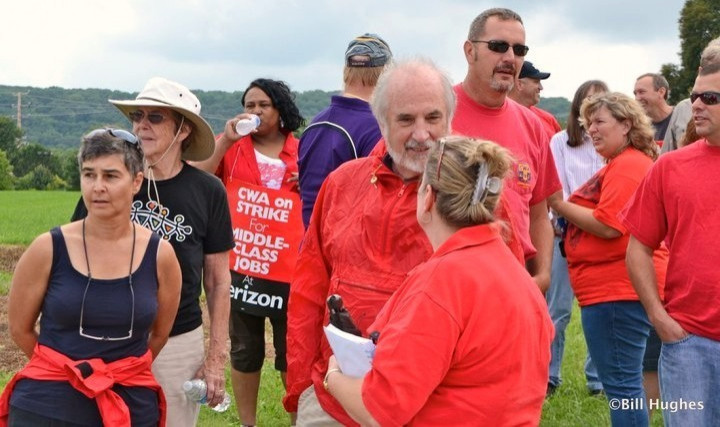Verizon Strike 2011: The View From an Academic

International Business Times spoke with Bill Barry, director of labor studies at The Community College of Baltimore County in Dundalk, Md., about issues surrounding the strike by 45,000 wireline workers against Verizon Communications Inc.
Barry is himself a labor activist and authored the book ‘Union Strategies for Hard Times.’
*Note, this interview was conducted prior to a report in Saturday’s Philadelphia Inquirer which said the strike may end this Tuesday
IBTIMES: In your opinion, what is this strike principally about? Is it about job security or the partial loss of health care benefits?
BARRY: This strike is principally about the obligation/willingness of a large employer to negotiate with a union, part of an epic confrontation that has been part of U.S. history since the country was founded, but which has intensified over the past 40 years or so.
The [Professional Air Traffic Controllers Organization] PATCO strike of 1981 (when Ronald Reagan broke the air-traffic controllers’ union) was the call to arms for the anti-union forces.
Some issues in this negotiations -- so-called because as of today [Saturday], Verizon is sitting on the same demands it made in June -- are job security and the cost of health insurance.
It is really about a very profitable company getting more money by taking it away (‘redistribution of wealth’, as the critics call it) from their workers. Any health insurance co-pay is a direct wage reduction.
Verizon is also demanding a reduction in the fully-paid health insurance for retirees, a direct attack on the phrase happy retirement.
There are many other big issues also on the table, like cuts in sick days, the ability to transfer from landlines to wireless, etc.
IBTIMES: The company has threatened to cut off health care coverage to all striking workers by the end of this month. Will this be enough to force them back on the job, or are they prepared for a lengthy walkout?
BARRY: The unions have anticipated the cut-off of insurance and have made plans to either continue it through COBRA or to cover medical expenses.
Certain pressure tactics by employers are standard operating procedure so the unions anticipated it.
Verizon also cancelled any paid vacations scheduled by union members for August and mistakenly cancelled some disability payments.
IBTIMES: Why are the unions so opposed to making contributions to their health care premiums, when the non-unionized Verizon (and most of the rest of the country’s workers) must do the same?
BARRY: Union members are opposed to making contributions for health care because it represents a direct wage cut and unions were not organized so workers could be paid less.
Look at your own pay check and calculate how much more you would have to spend (and stimulate the economy) if you didn't have to make a major payment for health insurance.
I would add as a personal comment that creation of a real national health care structure, like single-payer, would eliminate this problem -- from our pay checks and from negotiations.
IBTIMES: Verizon’s wireless workers are overwhelmingly non-union – is this by choice, or were they pressured by the company not to unionize? Do you sense that the wireless workers support the broader strike by the landline workers?
BARRY: Verizon Wireless workers are non-union because of considerable threats from Verizon -- after all, as I have asked them, would you rather pay $58/week for health insurance or $18/week for union dues? You do the math.
One problem for the unions is that they represent a declining percentage of telecommunications workers and needed to spend resources over the past three years organizing Verizon Wireless and Comcast. When unions control the market, conditions are better for the workers.
IBTIMES: How do you view this strike in the broader context of declining union membership in the U.S., particularly in the private sector?
BARRY: Declining union membership means that non-union standards are being forced upon union workers.
When unions were 37 percent of the workforce, unionized workers set the standards and employers extended to non-union workers benefits like defined benefits pensions, full-paid family health insurance, paid holidays and vacations, etc.
As unionism declined, the standards shifted.
IBTIMES: In the event that Verizon wins this labor dispute (i.e., they force the union to accept all the concession related to health care coverage, job security, etc.), what do you think the impact will be on the company and on the union movement?
BARRY: If Verizon wins, it will be a defeat for our side, but it's a long, long confrontation and one strike does not permanently settle anything. Same way if the unions win -- there'll be another tough negotiations (like the auto industry, postal service or airlines) coming up.
© Copyright IBTimes 2024. All rights reserved.





















